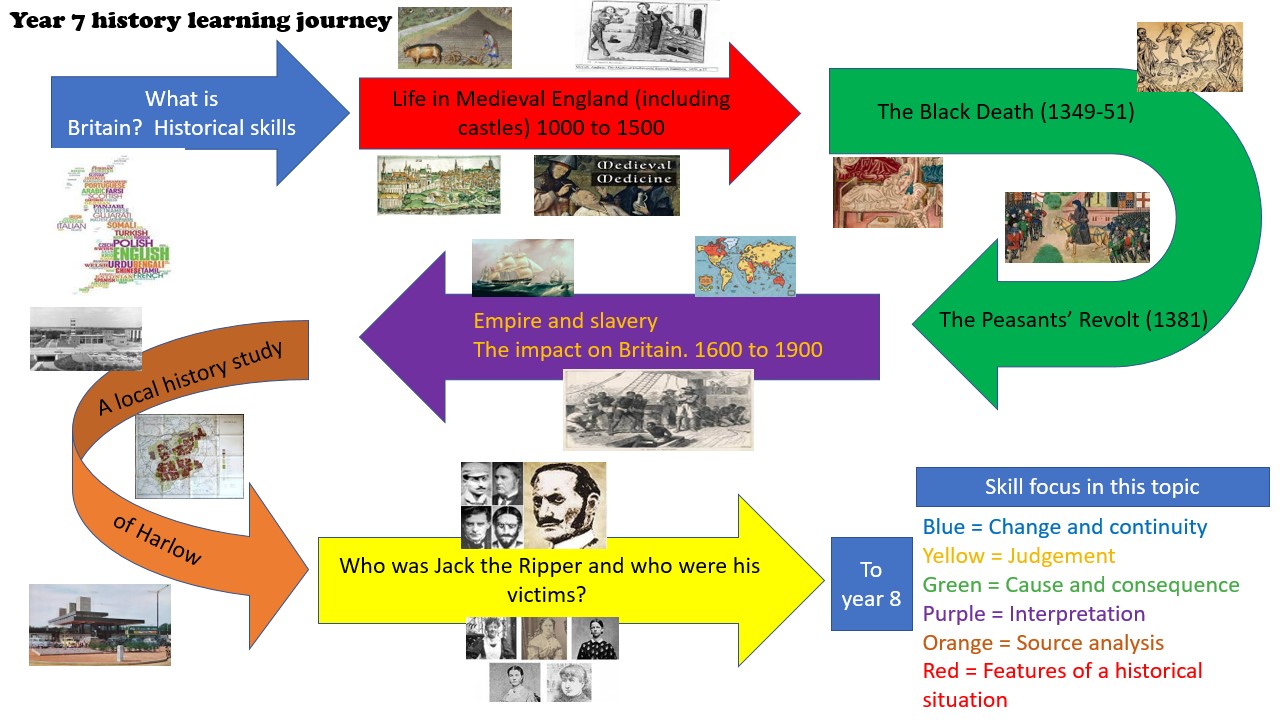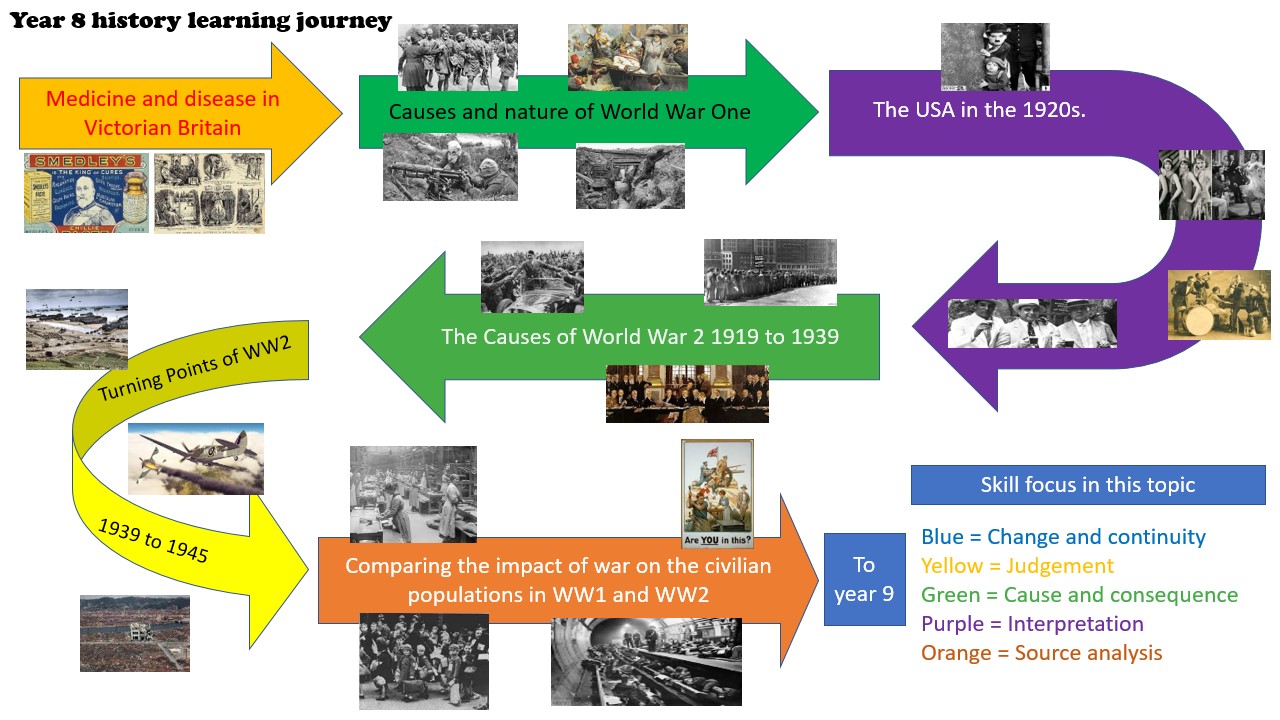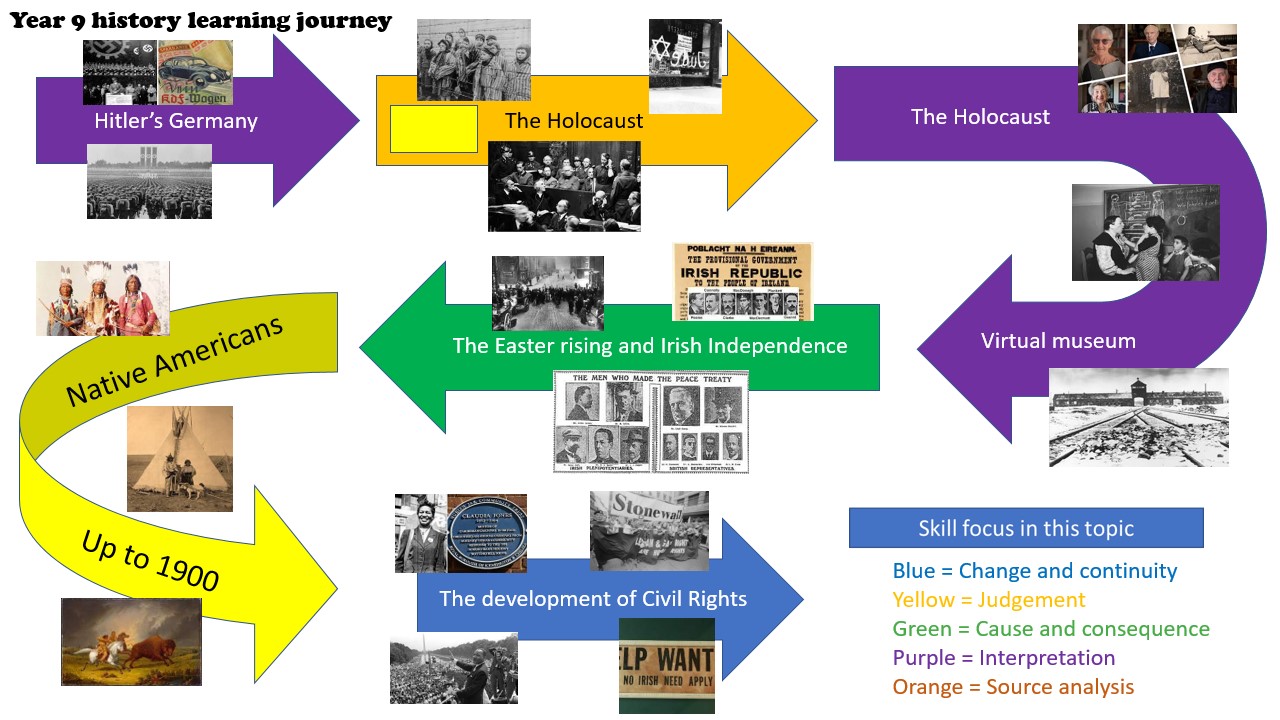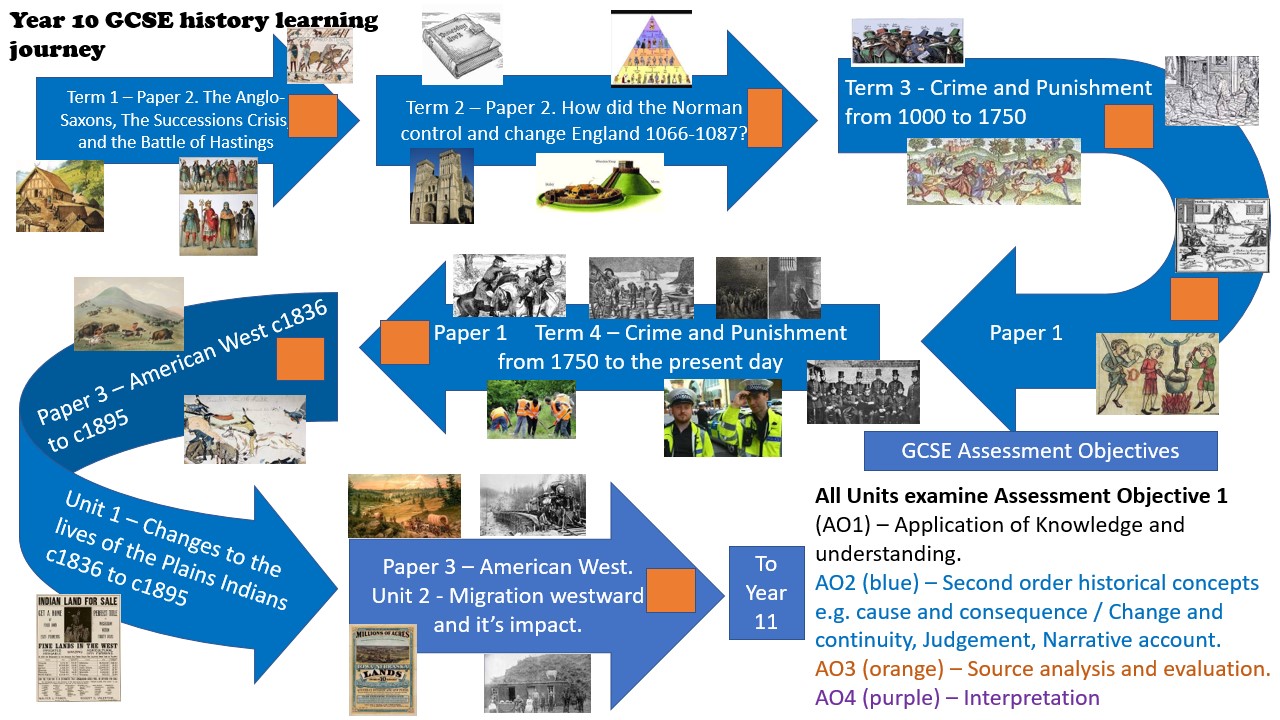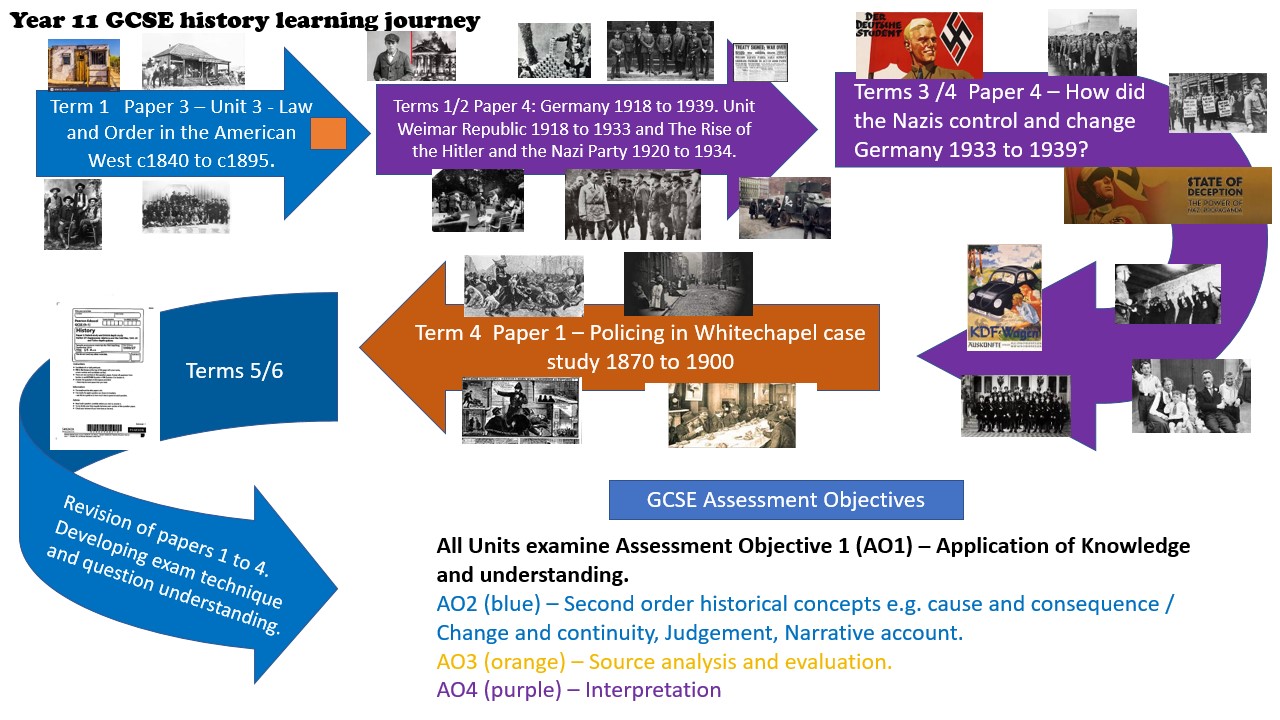History
History is a topic many people return to in later life, and we aim to give students the skills to make sense of the arguments and debates that appear in the news every day. It is said that history is the collective memory of the world and that a world without history is like a person who has lost their memory. So from this you can see just how important the study of history is.
At Passmores our aims for the teaching of history are:
-
Develop a lifelong love of our subject and a deeper awareness of the role history plays in understanding the wider world beyond school
-
Make explicit links between the past and its influence on the present and the future
-
Develop interchangeable skills such as communication and critical thinking which students can use in their lives outside school
-
Build their historical skills across KS3 (and GCSE if taken) to enable students to make exciting and informed decisions about the issues that matter to them. These skills include an awareness of empathy, interpretation, judgement, critical thinking, data analysis, cause and consequence and change and continuity
-
Use our subject to explore difficult questions about our past and how they relate to the present
At KS3 students follow a chronological programme of study that prepares them for GSCE and beyond. Each unit has a specific skill development and provide a range of historical experiences from around the world to develop student understanding of the breadth of history and how other cultures and societies have developed.
At GCSE we follow the Edxecel 9-1 history qualification. The four units we teach are Anglo-Saxons and Normans (British depth study), Crime and Punishment across time (Thematic study), The American West (World depth study) and Germany 1918-39 (Modern depth study).
By the end of KS3 a student of history should:
-
Have a wide-ranging knowledge of British history from c1000 to the present
-
Knowledge of other world cultures and societies, and how they interlink with British history
-
An understanding of their own historic environment (local study of Harlow)
-
Have been practising the main historical skills needed to succeed at GCSE and beyond i.e. application of knowledge and understanding; an understanding of second order historical concepts, source evaluation and analysis; interpretation
-
Have improved their literacy skills, as well as their wider communication and self-regulatory skills
-
Have the confidence to use what they have learnt to better understand the world around
-
Appreciate the role history plays in the development of the student’s social, moral, spiritual, and cultural education
By the end of KS4 a student of history should:
-
Have the skills to continue studying history at a higher level
-
Have a genuine love of the subject so that they will continue to have a lifelong interest in it
-
Have improved their literacy skills, as well as their wider communication and self-regulatory skills
-
Have the confidence to use what they have learnt to better understand the world around
-
Understand the role history plays in the development of the student’s social, moral, spiritual, and cultural education
